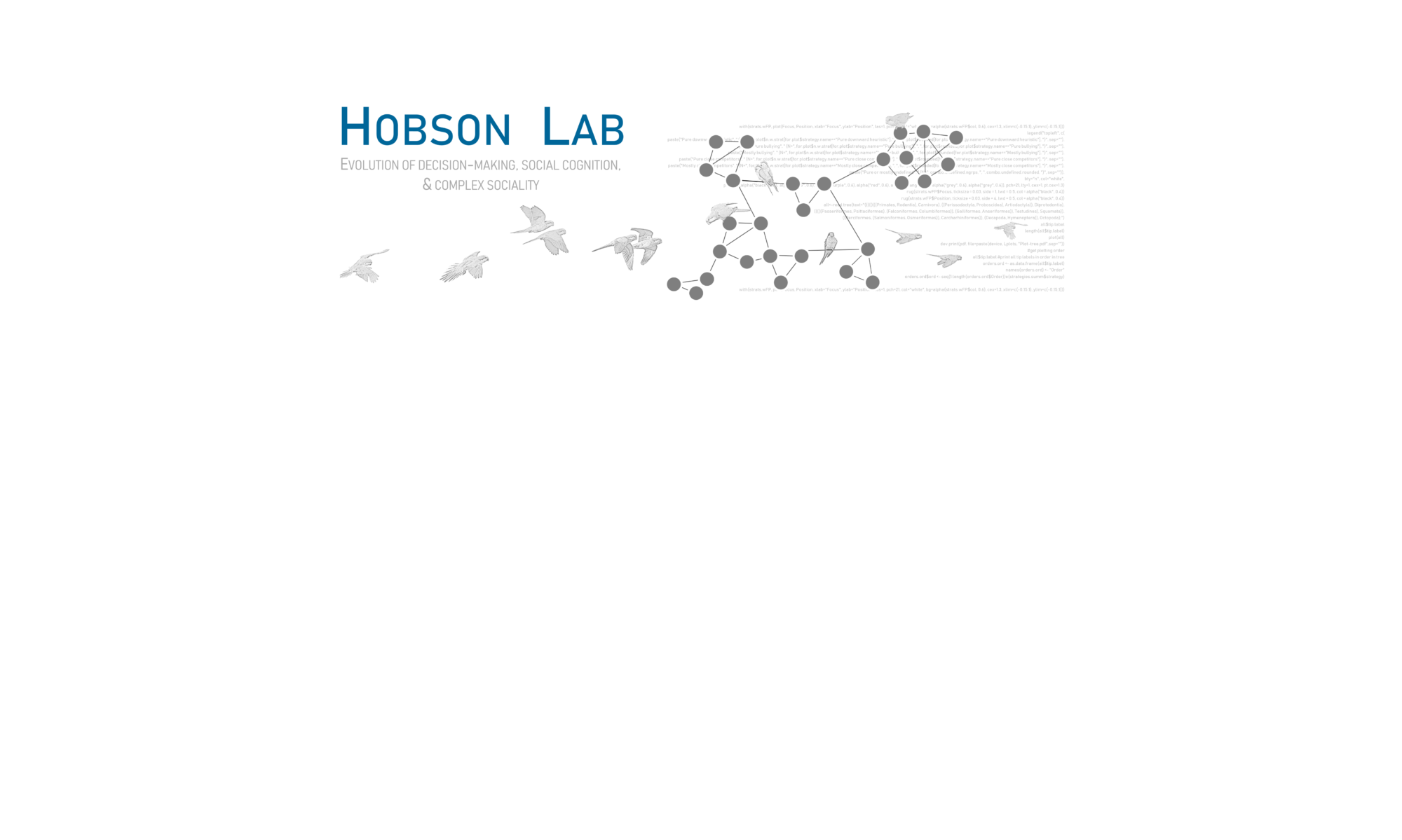A new paper, led by Hobson Lab postdoc Annemarie van der Marel, was just published!
In this paper, we wanted to test whether social history was an important factor in rank dynamics in captive groups of monk parakeets. My previous results, using computational approaches, suggested that this was the case, but we really wanted to conduct experimental manipulations to test it in action. Turns out, social history is critical to consider with these groups!
Read the full paper here (or access our preprint for free here)
Read the press release here
Abstract
Dominance hierarchies can provide many benefits to individuals, such as access to resources or mates, depending on their ranks. In some species, rank can emerge as a product of a group’s history of social interactions. However, it can be difficult to determine whether social history is critical to rank in observation-based studies. Here, we investigated rank dynamics in three captive groups of monk parakeets (Myiopsitta monachus). We used experimental social perturbations to test whether social history shapes rank emergence in these groups. Using targeted removals and reintroductions, we tested whether differently ranked individuals could re-take their ranks in hierarchies after reintroduction following their removal period from the group. We performed perturbations that consisted of an 8-day removal and an 8-day reintroduction period of 15 differently ranked focal birds. We found that no focal birds could regain their previous rank immediately following reintroduction and that the top-ranked birds showed greater relative rank loss than middle/low-ranked birds. We also found that morphology, specifically bodyweight, was unassociated with rank. Combined with previous results, this experiment supports the hypothesis that rank in monk parakeet dominance hierarchies is more likely to be an emergent outcome of past interactions and memory rather than based on individual characteristics. Gaining a better understanding of how individuals achieve and maintain rank can give insight into the role of cognition on rank acquisition, as rank position can have significant biological effects on individuals in hierarchically structured groups.
Altmetrics
Press coverage

